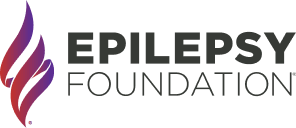Babysitter's Guide to First Aid
Simple First Aid (Most of the Time)
While you may never have to manage a seizure in a child with epilepsy, knowing what to do can make a big difference if a seizure does occur.
In most cases, all you need to do is a few very simple things to keep the child safe until the seizure ends on its own.
Sometimes, you don't have to do much of anything at all.
Little staring spells last only a few seconds and then the child goes back to what he was doing before. He or she she may not even know a seizure happened.
If a child jerks or falls suddenly because of a seizure, all you have to do is help him up, see if he hurt himself, and comfort him if he's upset.
If a child seems dazed and confused and wanders around looking half asleep, stay with her and talk to her quietly and calmly. Guide her gently away from anything that could hurt her (like stairs, a stove, or a hot radiator). Comfort her as she slowly comes out of it.
If a child suddenly cries out, falls, stiffens and shakes, you still don't have to do much. A few simple steps will keep him or her safe for the minute or two the seizure usually lasts.
- First, clear everything out of the way.
- Don't hold the child down or try to stop the jerking.
- Put something flat and soft under the child's head.
- Make sure there's nothing tight round his neck that could interfere with breathing.
- Check your watch so you'll know how long the seizure lasts.
- Turn the child gently onto one side so he or she doesn't choke.
- Don't try to open his mouth.
- Don't try to put anything in his mouth.
- Don't try to give him or her anything to drink during the seizure.
- Comfort the child as she starts to wake up afterwards. Help her get cleaned up if she wet or soiled herself during the seizure.
Some children are exhausted after a seizure like this and need to sleep. Some are confused or cranky for a while. Others can go back quite quickly to what they were doing before. The parents will tell you what to expect.
Emergency Aid: When to Get Help
Should you call the rescue squad if a child has a seizure in which he falls and shakes?
Yes, if the parents have asked you to call.
No, if the seizure ends without any problems and the child is back to normal afterwards.
The average seizure in a child who has epilepsy is not a medical emergency. It ends naturally by itself. But every rule has an exception or two, and that's true of epilepsy as well.
There are a few times, fortunately quite rare, when you should call for emergency medical assistance.
- When a seizure doesn't show any signs of stopping after five minutes.
- When the seizure happened in water and there's any chance that the child inhaled or swallowed a lot of water.
- When a child doesn't come round or isn't breathing properly afterwards.
- When a child vomits during the seizure and then doesn't come round or isn't breathing properly afterwards.
- When another seizure starts soon after the first one.
- When an unexpected seizure happens in a child who does not have epilepsy.
If a child has prolonged seizures (longer than 5 minutes) or has clusters of seizures, the doctor may have prescribed some special medicine that can be given. However, that is something that the parents will discuss with you, and you will need training in how to apply it.
Resources
Epilepsy Centers
Epilepsy centers provide you with a team of specialists to help you diagnose your epilepsy and explore treatment options.
Epilepsy Medication
Find in-depth information on anti-seizure medications so you know what to ask your doctor.
Epilepsy and Seizures 24/7 Helpline
Call our Epilepsy and Seizures 24/7 Helpline and talk with an epilepsy information specialist or submit a question online.
Tools & Resources
Get information, tips, and more to help you manage your epilepsy.


